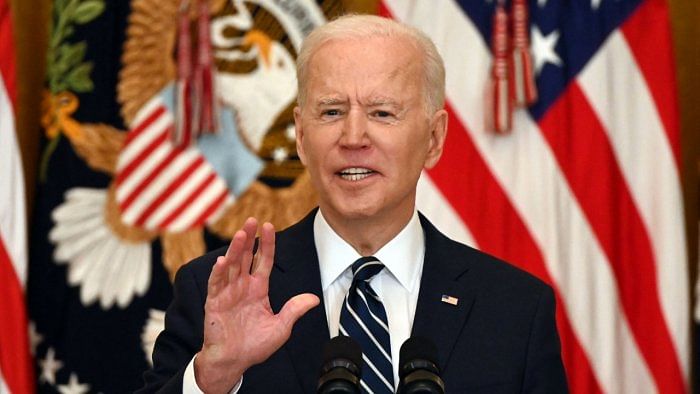
President Joe Biden's administration on Friday unveiled a more than $1.5 trillion budget proposal that would see US health, education and social service spending eclipse defence, in a reversal of his predecessor's policies.
The discretionary spending request for the fiscal year 2022 would allocate $769.4 billion to non-defence programs, more than the $753 billion apportioned for defence spending, which was prioritized under Donald Trump but only slightly increased under Biden's proposal.
The Biden administration characterized the increase in non-defence spending as necessary to help the country recover from the Covid-19 downturn and create a more equitable economy in the years ahead.
"The President's funding request makes things fairer," Treasury Secretary Janet Yellen said in a statement.
"It injects capital into communities where capital is usually hard to come by. It will make paying taxes a more seamless process for millions of Americans. And it makes sure that corporations actually pay what they owe."
The nearly 16 per cent increase in non-defence spending would bring it to 3.3 per cent of GDP, about equal to its historical average over the past three decades, Shalanda D. Young, acting director of the Office of Management and Budget, said in a letter to lawmakers.
The budget is a yearly undertaking for US presidents, signalling their major funding priorities, but must be approved by Congress.
Biden's proposal includes a more than 10 per cent funding increase to $13.3 billion for the US tax authority to improve its services and help it better monitor corporations and high earners.
It also aims $36.5 billion at schools serving poor populations, $6.5 billion for federal health research and $10.7 billion to fight the opioid epidemic.
The spending bill will be considered by a Congress where Democrats hold small majorities in both the House and the Senate, and where lawmakers are also debating Biden's $2 trillion jobs and infrastructure bill he unveiled last week.